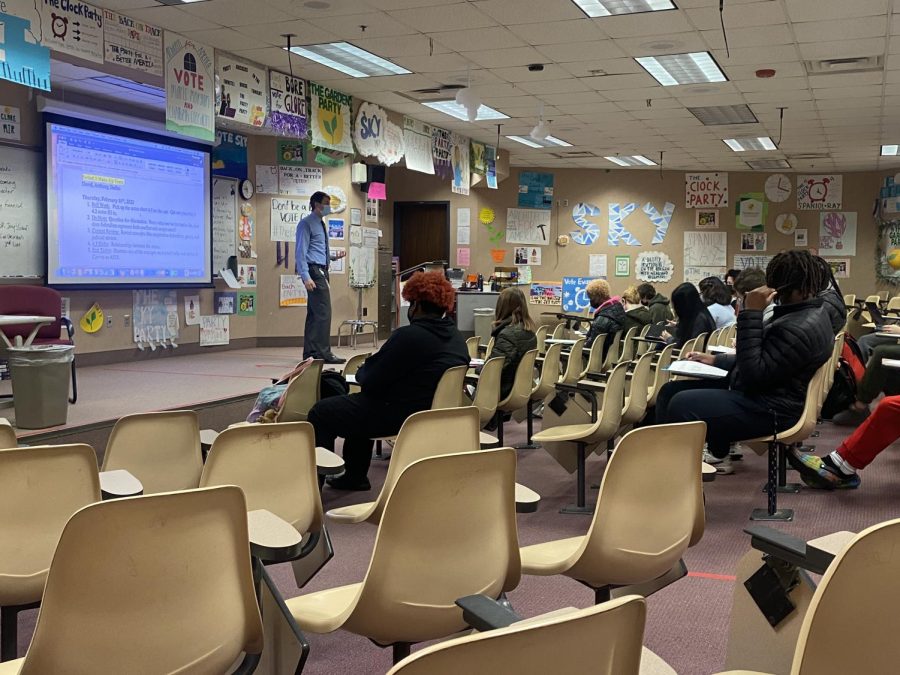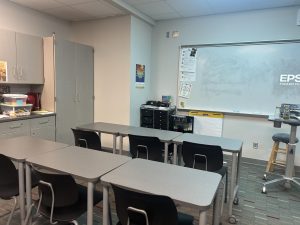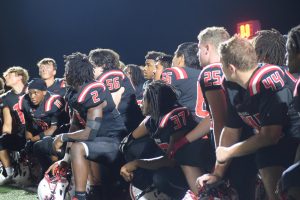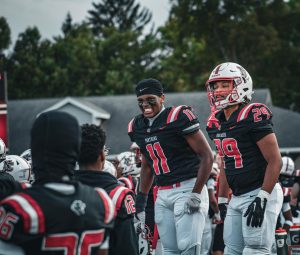House Bill 1134 unpopular among teachers
Social studies chair Chris Vermilion does not believe HB1134 will be beneficial towards students and teachers.
February 15, 2022
The Indiana General Assembly is currently reviewing House Bill 1134. The bill, if made a law, would have a significant effect on education and the involvement of parents and people outside of the education community to have access to lesson plans and curriculum.
The bill also states that parents would be given the option to remove their child from a lesson they do not want them to participate in. The parents would be able to determine whether or not they want their child to be in the classroom, because the teacher’s lesson plans will be made available to them.
I have coined the term “robotic learning” from HB 1134. Parents of students should not be allowed to take their kid out of class if they feel uncomfortable. If you aren’t uncomfortable learning then what are you actually learning?
Children should feel uncomfortable learning about the Nazis or slavery because it wasn’t right. It is important to learn about topics like these so humanity can learn from its mistakes. Creating in-depth lesson plans to be shared is an additional task that teachers do not currently have to worry about.
“It’s a lot of time and effort on top of a grueling job,” science department chair Lynn Schopp said.
This bill could also potentially scare off people who are considering pursuing a career in education.
“Morale right now is low and teachers feel defeated. Schools like Pike are already shutting down because of teacher shortages,” Schopp said.
“I have major concerns for hiring if the bill goes into effect,” social studies department chair Chris Vermilion said.
It typically takes around four years of college education to graduate with an education degree. In order to achieve a master’s degree in education people attend college for an additional two or four years.
“Teachers work hard to get their degrees, which most teachers have a masters degree. HB 1134 seems as if they are telling teachers not to use what we were taught,” Schopp said.
Schopp believes teachers who go to school to learn how to teach should be given the chance to plan their lessons without need for parent approval or consent.
”Would we take 50 random people off the streets and make them do the jobs of a firefighter or doctor?” Schopp said.
“The standards give us some latitude. It’s quite frankly insulting to tell a teacher what to do based on what the state gave us. Most teachers have a master’s degree and have put in the time,” Vermilion said.
While most teachers will agree that parents should be aware of what is going on in their student’s school life, the specifics of the bill incorrectly allow parents to outweigh teachers within education.
“The idea behind it is not terrible. The specifics about it scare me. The potential for teachers to get lawsuits. The whole idea of not teaching controversial topics. Initially, teachers would be afraid of what they say. Teacher-student relationships are a big part of education, and putting a strain on that makes leading a classroom harder,” Schopp said.
“We have an avenue for parents that want to control curriculum. It’s called private school. If you want to control your child’s education send them to a private school. You would essentially be turning public schools into private schools,” Vermilion said.
As being politically correct has become increasingly important to people this bill is strongly correlated to the teaching of controversial subjects.
”Teachers are already allowing students to make their opinions. Things like evolution are scientific facts. The good students would convince their parents to let them participate in their education,” Schopp said.
“The other thing the bill says is that kids can opt out of things that make them uncomfortable. Teaching students to be open minded about the topic they learn is major. As the department chair our staff is taught to provide content provided for students to provide an avenue for them. For me not to be able to talk about Nazis or slavery any furthermore than what the book says. I want to teach students to decide their own opinion,” Vermilion said.
“I am not in favor of it and we have a curriculum that we are asked to teach provided by the state and now the state is saying we can’t teach that, so the bill is contradicting,” Vermilion said.
Teachers feel what they are allowed to teach should not be censored because opinions of both teachers and students benefit the learning environment.
“It affects us on a higher level based on the nature of what we should be teaching in classrooms. We are in February right now which is also Black History Month. Kids should learn about black pioneers, instead of parents trying not to let schools teach curriculums like that. If the teacher is passionate about a certain part of history it restrains them from expressing themselves,” Vermilion said.
Ultimately, teachers feel that this will greatly affect students beyond school too. Suppressing what can be taught and expressed is not a reality of what people will be exposed to outside of the building.
“How will we learn to compromise in this country? This bill is trying to silence our ability to let kids create their own opinions. As a teacher, the skills are way more important to teach than the content. We want to help prepare the student for their future. A student ready for society after high school,” Vermilion said.











